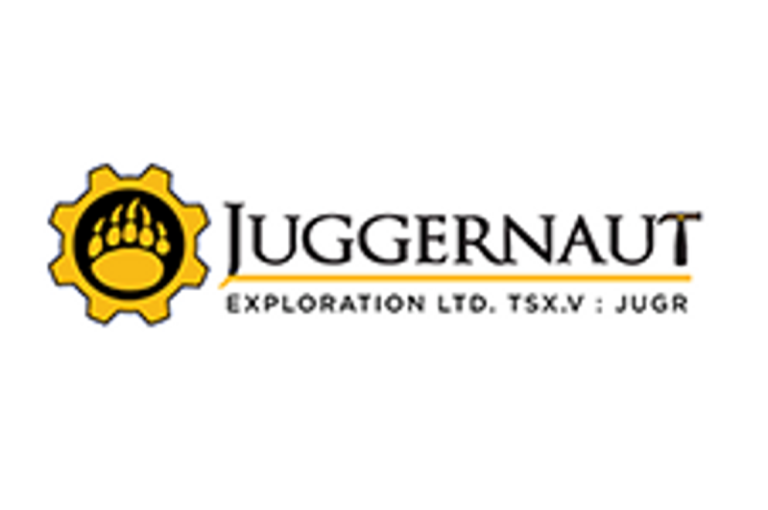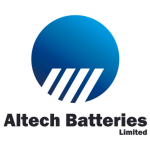(TheNewswire)
Vancouver, British Columbia July 23, 2025 TheNewswire – Juggernaut Exploration Ltd (JUGR.V) (OTCQB: JUGRF) (FSE: 4JE) ( the ‘Company’ or ‘Juggernaut’) is pleased to announce that it has mobilized for the 2025 surface exploration program aimed at identifying additional high-grade drill targets on the Big One property (the ‘ Property ‘), Golden Triangle, British Columbia. This new discovery yielded assays up to 79.01 gt Au (2.54 ozt Au) and 3157.89 gt Ag (101.5 ozt Ag) from >200 gold-silver-copper rich polymetallic veins up to 8 m wide and striking for up to 500 m that remain open. These veins were identified along the newly discovered 11 km Highway of Gold surrounding the Eldorado gold system on the Big One property. The discovery is located in an area of glacial and snowpack abatement adjacent to the extensive gold-rich porphyry systems at Galore Creek. The 100 % controlled property covers 36,989 hectares in a Tier 1 geologic terrane with tremendous additional discovery potential.
BigOne Eldorado Map
BigOne Video
The focus of the 2025 exploration program is to sample and trace in detail the full geometry of the multiple drill-ready high-grade gold veins as well as identify additional drill targets for the planned maiden drill program. The 2025 exploration program will consist of:
-
Detailed mapping and systematic sampling and channel cutting of the 5 drill-ready targets that remain open, namely:
-
the Whopper vein (8 m wide with grades up to 13.12 g/t Au and 169.88 g/t Ag)
-
the Big Mac vein (4 m wide with grades up to 37.98 g/t Au and 70.37 g/t Ag)
-
the Giant vein (1.5 m wide with grades up to 5.06 g/t Au and 91.41 g/t Ag)
-
the Deluxe vein (45 cm wide with grades up to 12.12 g/t Au and 2084.61 g/t Ag)
-
the Double Decker vein (50 cm wide with grades up to 19.82 g/t Au and 216.65 g/t Ag)
-
-
Compiling a regional map of the Big One property with particular focus on the porphyry system that remains open confirmed at Eldorado.
-
An extensive property-wide surface prospecting program aimed at identifying additional drill targets in preparation for the 2026 inaugural drill program.
-
A property-wide LiDAR survey
Dan Stuart, President and CEO of Juggernaut Exploration states ‘ The Big One is arguably one of the most significant new grassroots gold-silver discoveries in the Golden Triangle in recent years. This year’s program is designed with a clear objective: to systematically advance and expand upon our five inaugural, drill-ready targets and to generate additional new targets for our fully funded 2026 maiden drill program. The sheer scale of the system, with over 200 mineralized veins exposed at surface by glacial abatement, all point towards a powerful, district-scale mineralizing engine at depth. A Notice of Work application (drill permit application) has been submitted to the British Columbia Ministry of Mining and Critical Minerals in preparation for the 2026 inaugural drill program. We have only just started to scratch the surface on the property and likely only seen the tip of the iceberg.’
ELDORADO PORPHRYRY SYSTEM – 11 KM HIGHWAY OF GOLD – HIGHLIGHTS
-
Eldorado consists of a high-grade polymetallic gold-silver zone named Highway of Gold that stretches 11 km and remains open on newly exposed bedrock along the fringes of the Geology Ridge icefield and Decker Creek glacier
-
Eldorado demarks an area of 7.5 Km of recently exposed bedrock containing substantial propylitic alteration, hydrothermal veining, and epithermal veining with 200 quartz-sulphide veins up to 8 m wide containing semi-massive to massive chalcopyrite, sphalerite and galena with grades up to 79.01 g/t Au (2.54 oz/t Au) and 3157 g/t Ag (101.5 oz/t Ag), that remains open
-
The polymetallic veins, alteration signature, geochemical path finder element signature, and geophysical anomalies strongly indicate the presence of a common buried gold-silver-copper rich porphyry feeder source at depth responsible for the extensive high-grade veining confirmed on surface
-
The newly exposed Eldorado system contains 200 veins over an area of 1.2 km by 800 m that remains open. Within this zone, veins up to 8 m wide and striking up to 500 m were observed (Whopper vein), containing semi-massive to massive chalcopyrite, sphalerite and galena, indicated to be the source of historic high-grade gold-silver angular float samples reported in the 1960s in the valley below. Both the zone and the system remain open and are drill ready.
The Big One property is situated in a region that is well known for hosting world class precious metal and porphyry deposits, several of which occur near the property including the multiple Tier 1 porphyry systems at Galore Creek (12,159 million pounds of copper, 9.438 million ounces of gold, 174.086 million ounces of silver), the world’s largest known gold reserve at KSM (47.3 million ounces of gold, 160 million ounces of silver, 7.32 billion pounds of copper) and the polymetallic copper project at Shaft Creek (5 billion pounds of copper, 3.7 million ounces of gold, 16.4 million ounces of silver), as well as the Brucejack high-grade epithermal gold deposit (14 million ounces of gold, 91.8 million ounces of silver), and the structurally controlled high-grade hydrothermal gold-silver zones at Trophy and Sphal Creek. The property geology is favorable to host these types of deposits as confirmed by the presence of extensive areas of propylitic alteration, untested geophysical anomalies, strong silt, soil and rock geochemistry including path finder elements directly related to porphyry systems, key structures and textures, porphyry-style mineralization, and high-grade polymetallic veins, that have been discovered within the Big One claims. BigOne Property Map
The Big One property can be accessed year-round via helicopter from the Glenora/Telegraph Creek Road at the Barrington Mine (33 km to the north-northeast) as well as the Galore Creek Road (15 km to the southeast). The Canadian government committed $20 M to extend/improve the Galore Creek Road to within 15 km of the Big One property. The property is 2 km west of the Scud River airstrip used in the early days of Galore Creek.
A Notice of Work application (drill permit application) has been submitted to the British Columbia Ministry of Mining and Critical Minerals in preparation for the 2026 inaugural drill program. The Big One property exploration qualifies for the Critical Mineral Exploration Tax Credit (CMETC).
About Juggernaut Exploration Ltd.
Juggernaut Exploration Ltd. is an explorer and generator of precious metals projects in the prolific Golden Triangle of northwestern British Columbia. Its projects are in world-class geological settings and geopolitical safe jurisdictions amenable to Tier 1 mining in Canada. Juggernaut is a member and active supporter of CASERM, an organization representing a collaborative venture between the Colorado School of Mines and Virginia Tech. Juggernaut’s key strategic cornerstone shareholder is Crescat Capital.
Qualified Person
Rein Turna, P. Geo is the qualified person as defined by National Instrument 43-101, for Juggernaut Exploration projects, and supervised the preparation of, and has reviewed and approved, the technical information in this release.
Other
Grab, channels, chip and talus samples were collected by foot with helicopter assistance. Prospective areas included, but were not limited to, proximity to MINFile locations, placer creek occurrences, regional soil anomalies, and potential gossans based on high-resolution satellite imagery. The rock grab and chip samples were extracted using a rock hammer, or hammer and chisel to expose fresh surfaces and to liberate a sample of anywhere between 0.5 to 5.0 kilograms. All sample sites were flagged with biodegradable flagging tape and marked with the sample number. All sample sites were recorded using hand-held GPS units (accuracy 3-10 meters) and sample ID, easting, northing, elevation, type of sample (outcrop, subcrop, float, talus, chip, grab, etc.) and a description of the rock were recorded on all-weather paper. Samples were then inserted in a clean plastic bag with a sample tag for transport and shipping to the geochemistry lab. QA/QC samples including blanks, standards, and duplicate samples were inserted regularly into the sample sequence at a rate of 10%.
All samples are transported in rice bags sealed with numbered security tags. A transport company takes them from the core shack to the Paragon Geochemical labs facilities in Surrey, BC or ALS labs facilities in North Vancouver, BC. Paragon Geochemical is certified with both AC89-IAS and ISO/IEC Standard 17025:2017. ALS is either certified to ISO 9001:2008 or accredited to ISO 17025:2005 in all of its locations. Samples submitted to Paragon received gold and silver analysis by photon assay whereby the entire sample is crushed to approximately 70% passing 2 mm mesh. The entire crushed sample is riffle split and weighed into multiple (300-500g) jars that are submitted for photon assay. Photon assay uses high-energy X-rays (photons) to excite atomic nuclei within the jarred samples, causing them to emit secondary gamma rays, which are measured to identify and quantify the metals present. The assays from all jars are combined on a weight-averaged basis. At ALS samples were processed, dried, crushed, and pulverized before analysis using the ME-MS61 and Au-SCR21 methods. For the ME-MS61 method, a prepared sample is digested with perchloric, nitric, hydrofluoric, and hydrochloric acids. The residue is topped up with dilute hydrochloric acid and analyzed by inductively coupled plasma atomic emission spectrometry. Overlimits were re-analyzed using the ME-OG62 and Ag-GRA21 methods (gravimetric finish). For Au-SCR21 a large volume of sample is needed (typically 1-3kg). The sample is crushed and screened (usually to -106 micron) to separate coarse gold particles from fine material. After screening, two aliquots of the fine fraction are analysed using the traditional fire assay method. The fine fraction is expected to be reasonably homogenous and well represented by the duplicate analyses. The entire coarse fraction is assayed to determine the contribution of the coarse gold.
For more information, please contact:
Juggernaut Exploration Ltd.
Dan Stuart
President, Director and Chief Executive Officer
Tel: (604)-559-8028
www.juggernautexploration.com
NEITHER THE TSX VENTURE EXCHANGE NOR ITS REGULATION SERVICES PROVIDER (AS THAT TERM IS DEFINED IN THE POLICIES OF THE TSX VENTURE EXCHANGE) ACCEPTS RESPONSIBILITY FOR THE ADEQUACY OR ACCURACY OF THIS RELEASE.
FORWARD LOOKING STATEMENT
Certain disclosure in this release may constitute forward-looking statements that are subject to numerous risks and uncertainties relating to Juggernaut’s operations that may cause future results to differ materially from those expressed or implied by those forward-looking statements, including its ability to complete the contemplated private placement. Readers are cautioned not to place undue reliance on these statements.
NOT FOR DISSEMINATION IN THE UNITED STATES OR TO U.S. PERSONS OR FOR DISTRIBUTION TO U.S. NEWSWIRE SERVICES. THIS PRESS RELEASE DOES NOT CONSTITUTE AN OFFER TO SELL OR AN INVITATION TO PURCHASE ANY SECURITIES DESCRIBED IN IT.
Copyright (c) 2025 TheNewswire – All rights reserved.
News Provided by TheNewsWire via QuoteMedia



